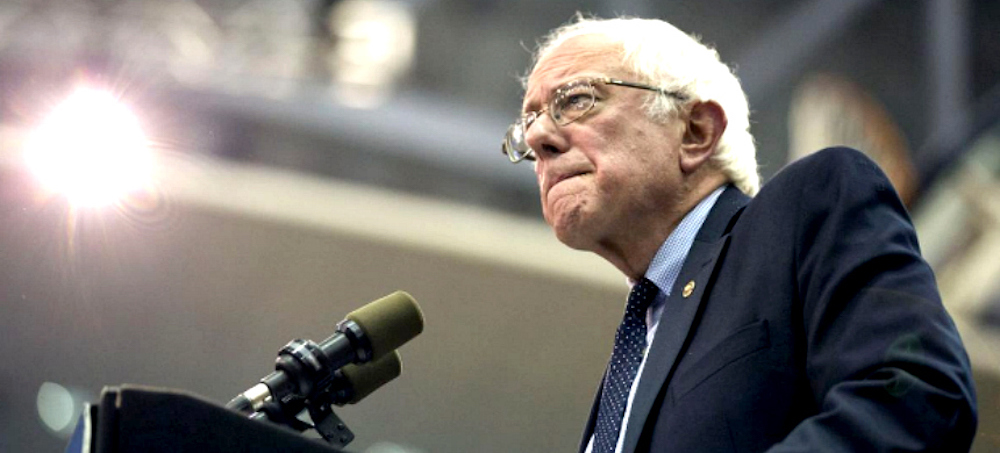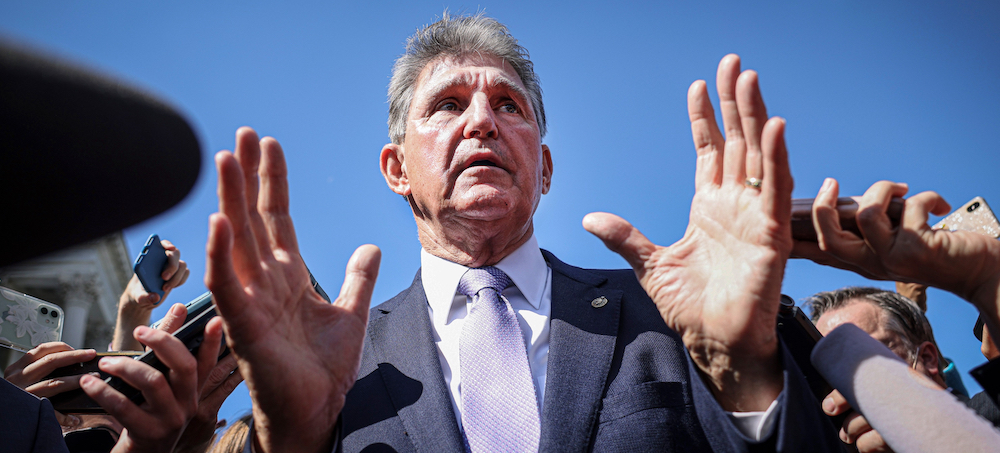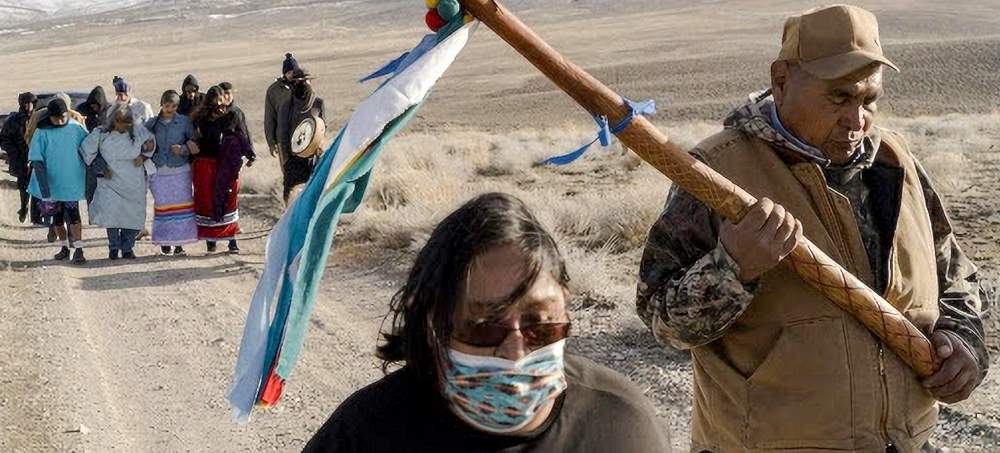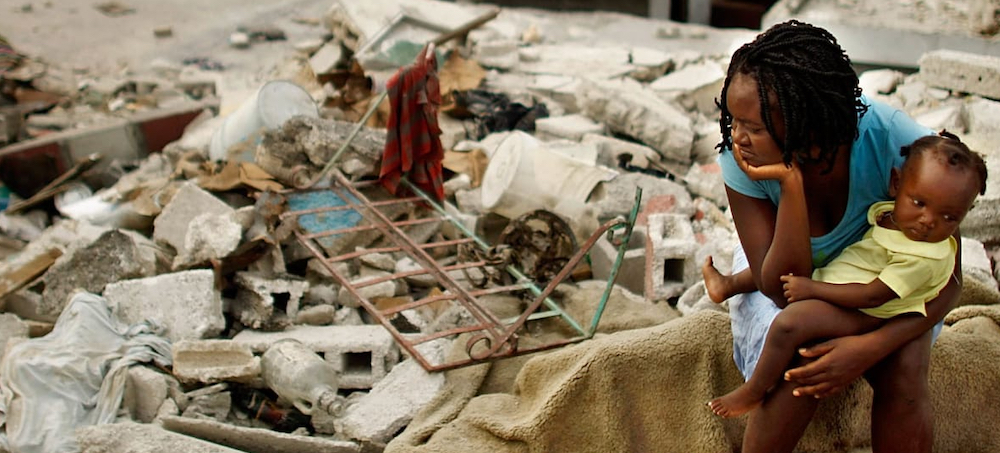Live on the homepage now!
Reader Supported News
What he meant was that he would not soften his sharp conservative edges or change ideological stripes as did some of his fellow justices, including Harry Blackmun and David Souter.
Justice Thomas has certainly kept his vow. Indeed, some legal analysts say he is the most consistently conservative member of the court since the 1930s. He has written a raft of concurring and dissenting opinions that are so far to the right that it is common for him to issue them solo, without any of his colleagues signing on.
 Bernie Sanders. (photo: Antonella Crescimbeni)
Bernie Sanders. (photo: Antonella Crescimbeni)
Sanders, who chairs the Senate Budget Committee, fired the latest salvo on Friday taking the fight over the plan to West Virginia. Sanders penned a Charleston Gazette-Mail op-ed, which will run in the newspaper Sunday, to tout the benefits that could be included under a $3.5 trillion bill, a top-line figure that Manchin and Sen. Kyrsten Sinema (D-Ariz.) oppose.
"Poll after poll shows overwhelming support for this legislation. Yet, the political problem we face is that in a 50-50 Senate we need every Democratic senator to vote 'yes,' We now have only 48. Two Democratic senators remain in opposition, including Sen. Joe Manchin," Sanders wrote.
Sanders added that Congress was at a "pivotal moment" and had a "historic opportunity to support the working families of West Virginia, Vermont and the entire country and create policy which works for all, not just the few."
Manchin quickly fired back, accusing Sanders of trying to meddle in a state he isn't from.
"This isn’t the first time an out-of-stater has tried to tell West Virginians what is best for them despite having no relationship to our state," Manchin said.
He added that Sanders was trying to "throw more money on an already overheated economy" and that 52 senators— an apparent reference to himself, Sinema and the 50-member Senate GOP caucus — "have grave concerns about this approach."
"To be clear, again, Congress should proceed with caution on any additional spending and I will not vote for a reckless expansion of government programs. No op-ed from a self-declared Independent socialist is going to change that," Manchin said.
Sanders and Manchin, while both members of Senate Majority Leader Charles Schumer's (D-N.Y.) leadership team, do not have a close working or personal relationship, representing two opposite sides of both the Senate caucus and the party.
Manchin helped negotiate a roughly $1 trillion bipartisan infrastructure bill, which passed the Senate earlier this year. Sanders subsequently called for House progressives to tank the bill, which he voted for in the Senate, if House Speaker Nancy Pelosi (D-Calif.) brought it up without the sweeping social spending bill that Democrats are passing under budget rules known as reconciliation.
Sanders has downplayed that he, Manchin and Sinema need to get in a room together to try to work out their differences, recently telling a reporter who floated the idea that "this is not a movie."
But he has increasingly tried to ramp up public pressure on Manchin as progressives lose patience with their colleagues, who they view as out of step with most congressional Democrats.
After Manchin held a press conference last week to reiterate that he supports a $1.5 trillion plan, Sanders subsequently held two press conferences last week where he urged the West Virginia Democrat and Sinema to be more specific about what they can accept in the spending bill negotiations.
Sanders also joined progressives in a press call this week to try to hammer home the message to the two moderates to negotiate. Both of the moderate senators, or their spokespeople, have stressed that they are in talks with the White House, though many of their colleagues remain in the dark about what they could, or couldn't, support.
“The time for us to be negotiating with ourselves is over, and I think it is absolutely incumbent on the two senators ... to start telling us what they want," Sanders told reporters during the Tuesday call.
Sanders hasn't yet said what below $3.5 trillion he could support, characterizing the top-line figure as a significant compromise for progressives who wanted a $6 trillion bill.
But Democratic leadership, Biden and rank-and-file Democratic lawmakers acknowledge that the top line for the bill is going to have to come down. With thin majorities, Democrats can only afford to lose three members in the House and need total unity among the 50-member Senate Democratic caucus to pass the spending bill without GOP votes.
Manchin has said he could support a $1.5 trillion bill, and has floated a substantially narrower scope built off of changes to the 2017 GOP tax bill, as well as help for children and seniors.
But Sanders, in his Charleston Gazette-Mail op-ed, tried to make the case for the larger $3.5 trillion bill, which Democrats want to pay for in part by raising taxes on corporations and some high-income earners.
Sanders pointed to combating climate change, housing investments, expanding benefits for children, including extending a beefed up child tax credit, and providing universal pre-K and free community college as ideas that could all be included in the larger bill.
Manchin has said that he wants to put work requirements or income-based means testing on many of the benefits to try to target who qualifies for the aid, while also lowering the overall cost of the bill.
Sanders also touted allowing Medicare to negotiate drug prices and expanding Medicare to cover hearing, vision and dental.
Though Manchin indicated that generally he supports allowing Medicare to negotiate drug prices, he's sent warning shots over expanding it to include the new health services.
"I'll say this about Medicare: We need to stabilize it. By 2026, you understand the trust fund is going to be insolvent. ... I want to make sure we are stabilizing what we have before we start going down this expansion role," Manchin said last month.
 F-35 fighter jet. (photo: Getty Images)
F-35 fighter jet. (photo: Getty Images)
The Pentagon’s bloated budget is a colossal waste of resources that could be better used elsewhere. But it’s also an outrage to democracy.
The country’s legislative institutions appear structurally incapable of passing all kinds of popular and desirable measures but lavish funds earmarked for the Pentagon routinely sail through with only minimal opposition — opposition which rarely, if ever, comes from those who so relentlessly urge “fiscal restraint” elsewhere. As Stephen Semler put it earlier this week: “Roll call votes on military spending reveal that there are considerably fewer ‘deficit hawks’ or ‘fiscal conservatives’ in Congress than reported by mainstream media outlets, if any at all.”
The dynamic is all the more striking when you try to comprehend the sums involved. According to a recent report by the Institute for Policy Studies, the United States has spent a nearly inconceivable $21 trillion on militarization since 2001 — a figure which only gets slightly smaller when you narrow it down to direct military spending ($16 trillion).
Legislation like the reconciliation bill currently before Congress, which would amount to a comparatively paltry $3.5 trillion in spending over the next decades, remains controversial among self-appointed fiscal hawks, even as the Pentagon’s budget for the coming year alone is quite likely to exceed $770 billion. America’s military spending has dwarfed that of other countries for decades, but the years since 9/11 have seen it balloon to such an extent that it now makes up more than half of the federal discretionary budget in a typical year — now being even larger than it was at the height of the Cold War.
One response available to critics is to highlight the many areas of priority where funds could be better spent, something that Congress’s small number of advocates for reducing the Pentagon budget — like Barbara Lee and Marc Pocan — regularly point out. Military spending allocated for 2022 considerably exceeds the cost of five separate Green New Deal bills. For a miniscule fraction of what America spent on the two-decade-long “war on terror,” it could have fully decarbonized its electricity grid, eradicated student debt, offered free preschool, and funded the wildly popular and effective COVID-era’s anti-poverty Child Tax Credit for at least a decade. Spending public funds so lavishly on war inevitably means not spending them elsewhere, and it’s incredible to imagine what even a fraction of the money sucked up every year by America’s bloated military-industrial complex could accomplish if invested differently.
Fundamentally, however, the case against the Pentagon’s ever-expanding budget is a democratic one. Every year, the government of the world’s most powerful country now allocates more than half of its discretionary funds to what is laughably called “defense spending” — regardless, it turns out, of whether the nation is at risk of attack or officially at war.
Corporate capture of Congress is a problem in most major policy areas, but defense contractors and other military concerns have a stranglehold that is arguably unmatched. Thanks to a small but growing number of left-wing voices in Congress, official opposition to militarization is stronger than it’s been for quite some time. But bipartisan support for the Pentagon budget remains so ironclad that most military spending votes are basically perfunctory — a legislative rubber stamp which lends legitimacy to an outcome everyone knows is a foregone conclusion.
If someone like Bernie Sanders had been elected president and sought to implement even marginal belt-tightening at the Pentagon, the scale of political, institutional, and industry opposition would likely have dwarfed the (hardly trivial) backlash to Joe Biden’s recent pullout from Afghanistan.
It’s certainly useful for antiwar voices to highlight the wasteful nature of military spending, and make the case that billions currently being spent on tanks, drones, and cruise missiles could be better used elsewhere. But over half of discretionary public funds being cursorily earmarked every year to America’s bloated military apparatus represents an issue altogether more serious and profound than mere waste.
 Sen. Joe Manchin. (photo: Kevin Dietsch/Getty Images)
Sen. Joe Manchin. (photo: Kevin Dietsch/Getty Images)
The West Virginia Democrat told the White House he is firmly against a clean electricity program that is the muscle behind the president’s plan to battle climate change.
Senator Joe Manchin III, the Democrat from coal-rich West Virginia whose vote is crucial to passage of the bill, has told the White House that he strongly opposes the clean electricity program, according to three of those people. As a result, White House staffers are now rewriting the legislation without that climate provision, and are trying to cobble together a mix of other policies that could also cut emissions.
A White House spokesman, Vedant Patel, declined to comment on the specifics of the bill, saying, “the White House is laser focused on advancing the president’s climate goals and positioning the United States to meet its emission targets in a way that grows domestic industries and good jobs.”
 A group of Fort McDermitt Paiute and Shoshone Tribal descendants walk through Thacker Pass protesting development of a lithium mine. (photo: Daranda Hinkey)
A group of Fort McDermitt Paiute and Shoshone Tribal descendants walk through Thacker Pass protesting development of a lithium mine. (photo: Daranda Hinkey)
Legal setbacks in efforts to block a new lithium mine in Nevada’s Thacker Pass highlight how federal courts routinely fail to protect sacred lands
Tribal oral history depicts US soldiers killing dozens of Indigenous people in the late 1800s, including women and children, and leaving behind a burial ground with deep spiritual significance. The generations that followed have honored the expansive site with ceremonies while continuing to hunt and forage for traditional foods and medicines.
But despite their centuries-long connection to the land, the Paiute and Shoshone people may soon see their traditions and cultural history uprooted: a multinational company plans to break ground on a new 1,000-acre lithium mine that would destroy sacred land in order to extract a central component for electric car batteries.
“We’re just protecting our elders, their grandparents, the integrity of the things that they had,” said McKinney, 32, a member of the Shoshone-Paiute Tribes. “There was life back there, there was death back there.”
Indigenous communities across the US face difficult legal battles when trying to protect sacred spaces outside their jurisdictions. The sites’ religious significance is often misunderstood or treated with blatant disregard. And because there are no overarching legal protections for sacred Indigenous spaces, tribes have limited options in the courtroom.
Legal efforts to stop the Thacker Pass lithium project, including a lawsuit by local tribes, ranchers and environmental groups, have so far failed. Last month, their attempt to temporarily block an archeological survey needed to begin construction, was denied.
It isn’t the only sacred site embroiled in the courts. Last month, the Canadian company Enbridge announced that its Line 3 oil pipeline upgrade in Minnesota was “substantially completed” despite strong pushback from Indigenous and environmental groups who have detailed the devastating impact of drilling on sacred grounds. The Gila River Indian Community also recently lost its years-long legal fight to stop the construction of the South Mountain freeway, which will run through their sacred site.
These cases, while distinct, stand in sharp contrast to the ideals of a country firmly founded on religious freedom. For many Indigenous peoples, they represent yet another painful example of the historic and institutionalized inequities that they encounter.
For months, tribal communities surrounding Thacker Pass have been working to protect this sacred site from a similar fate.
The project, which was approved by the Trump administration in January, is expected to produce lithium, a crucial component of electric vehicle batteries, and could play an important role as the country shifts from fossil fuels. Lithium Americas, the corporation behind the project, said it expects this mine “to meet most or all of the projected demand for lithium in the United States”.
But some in the Native and environmental communities say the project is not worth the devastating cost it would have on the environment, on including sage grouse and other wildlife, and on the sacred land.
In ruling against the tribes, Chief Judge Miranda Du said that the National Historic Preservation Act, which includes the protection of Native cultural and religious sites, doesn’t give them “the right to prevent all digging in the entire project area”.
The People of Red Mountain, a group opposed to the mine, described the project as akin to building over Pearl Harbor or the Arlington National Cemetery.
“We would never desecrate these places and we ask that our sacred sites be afforded the same respect,” the group said in a statement.
Legal experts say many factors help explain why Indigenous communities so often lose out against big corporations and their own federal government when trying to protect sacred spaces. Some believe a lack of understanding of Native religious practices is at play; others see an overt double standard.
Suzan Harjo, president of the Morning Star Institute, a national Native American rights organization, and former executive director of the National Congress of American Indians, pointed to the long and painful history of religious persecution.
In the late 1800s, she explained, officials outlawed Indigenous ceremonies and visiting sacred spaces outside designated reservations. In more recent decades, despite the 1978 American Indian Religious Freedom Act, which was meant to protect spiritual rights, Indigenous people have continued to lose access to these lands.
Harjo said a supreme court decision in 1988 set a fairly destructive tone for the future of protecting sacred spaces. The court approved the construction of a road through a section of a national forest considered sacred. The court stated that the first amendment’s protection of citizens’ right to practice their religion does not prohibit such an action.
For Native people whose spiritual practices are woven tightly with sites throughout the natural world, such a decision was extremely significant.
“It becomes something that can be used as something to beat everyone up with, although that’s not necessarily what it is,” she said of the high court’s ruling. “It’s just a convenient weapon to use against the available target.”
The Indigenous movement to protect ancestral lands is not just about securing the longevity of sacred traditions. It has a clear environmental impact, too.
A coalition from an Indigenous environmental group and clean energy advocacy organization released a report in August that found successful efforts to curb fossil fuel development in the US and Canada over the past decade was the “carbon equivalent of 12% of annual US and Canadian pollution, or 779m metric tons CO2e”.
But as the Thacker Pass lithium mine project shows, tensions over land use aren’t unique to fossil fuel extraction. Even the transition to more renewable energy sources comes with its own pitfalls.
Daranda Hinkey, an organizer with People of Red Mountain, said the court ruling last month showed a complete lack of understanding of tribal oral histories, burial grounds and Indigenous spiritual practices.
“These court systems, these legal systems, everything like that, is not set up for Indigenous people at all,” she said.
For McKinney, the 32-year-old member of the Shoshone-Paiute Tribes, the fight isn’t over.
After learning about the mine, he quit his job and helped to set up a protest camp at the site to try to safeguard the sacred traditional lands. McKinney said he has been there on and off since July and will continue to try to protect the space from future development from Lithium Americas.
“We feel that they’re dishonorable people for taking advantage of the elders and disrespecting the land that means so much to a people that they have no knowledge about,” he said.
 Survivors of an earthquake in Haiti. (photo: Chip Somodevilla/Getty Images)
Survivors of an earthquake in Haiti. (photo: Chip Somodevilla/Getty Images)
Photos from the makeshift camp in Del Río show desperation and unsanitary conditions where almost 15,000 Haitians hoped to apply for asylum. U.S. Border Patrol officers on horseback were seen corralling people, pushing them back to the Río Grande and onto México.
"I want people to understand the misery," says Revolus who describes the journey as "hell." Revolus can't remember the exact date when his family started the journey to the the U.S. border. "Time blurs," he says. But it took them almost three months of travel mostly by bus, many days by foot and the family crossed from Colombia to Panama in a jam-packed boat. Revolus says his enfant son kept getting sick, constantly throwing up and having diarrhea.
Border Patrol officers detained the family in Del Río on Sept. 24 when the makeshift camp was cleared by authorities. They were taken to a detention center in Texas.
"We were not given the chance to make our case for asylum," Revolus says. The family was put on a deportation flight to Haiti on Sept. 27.
"We were just looking for a better life, but we were turned back," he says.
For many Haitians, like Revolus, the experiences lived at Del Río encampment last month served as a painful reminder of their past, they say.
It's a history of racism and mistreatment by U.S. authorities that goes back to when Haiti gained its independence in the 19th century to today's instability.
"After all the decades of U.S. meddling in Haiti's affairs, I truly believed I'd be allowed to apply for asylum at the border," Revolus says speaking on the phone from Port-au-Prince. "We never thought we would end up back in Haiti."
Revolus and his family are back in a country where the rule of law seems to have collapsed. "Haiti is like a war zone right now," he says. "Shootings are rampant, people are being killed for small things, it's not a livable country. It's very dangerous."
Haiti is in the aftermath of a recent devastating earthquake as well as political instability after President Jovenel Moïse's assassination in July. The country is experiencing growing gang violence and out-of-control kidnappings, according to Control Risks, a firm that specializes in risk consultancy.
"We don't leave our house very much, especially after dark," says 42-year old Revolus whose family is temporarily living with one of his sisters in Port-au-Prince, the capital.
Revolus and his wife fled Haiti on Jan. 6, 2018. "We were first welcomed in Chile," he says. He was able to find work at a meat shop, stocking refrigerators and shelves but was barely making enough to cover basic living expenses. Then attitudes toward Haitians changed, he says. "We faced discrimination and racial slurs."
"Two co-workers tried to stab me," says Revolus, who was in Chile on a work visa. They resented having to share tips with him, he says. "When I complained to my boss, he didn't do anything."
Feeling growing pressure in Chile, many Haitians started traveling to the U.S. border earlier this year. "Many friends made the journey and were able to reunite with family in the U.S.," Revolus says.
He says he and his wife garnered the courage to head to the border. "It wasn't an easy decision, but we were desperate," he says.
For months Revolus says he spoke with his cousin Francesca Menes, an activist in Miami who runs The Black Collective, a grassroots organization, about his plans to seek asylum at the U.S. border, and she warned him against it.
"I wish I had listened to my cousin," Revolus says, "but we were just looking for a better life."
Menes says that when Revolus shared his plans, her heart sank – not only because the journey is long and dangerous, she says, but, "as Black immigrants, you are treated much more differently and much harsher than any other immigrant group. It's the layer of being Black and immigrant," she adds, "being Black in America is a very different reality."
The relationship between Haiti and the U.S. is not mutually beneficial
Many Haitians see U.S. immigration policy as historically racist and anti-Black – pointing to the U.S. occupation of Haiti from 1915 to 1934, including the support of a brutal dictatorship and the recent massive surge of migration in Del Río, Texas.
"It's not a mutually beneficial relationship how Haiti governs and functions, is to the benefit of the United States," Menes says.
She says that leadership in Haiti, "has either been supported by the U.S. or if it's supported by the people [of Haiti], it's interrupted by the United States government."
"We have seen, historically, a lot of puppet presidents that the United States has put in power," says Menes, who is Haitian American. "It happened with Aristide and he was actually doing good for the people."
Menes is referring to Jean-Bertrand Aristide, a former priest who embraced liberation theology, an approach that emphasizes helping the poor and oppressed. Aristide was overwhelmingly elected president of Haiti twice – first in 1990 and again in 2000, both times his administration was overthrown in a coup d'état supported by the United States government.
Haiti is the country with the highest rate of asylum denial in the U.S., according to data from the Justice Department. As reported by the Associated Press, from October 2018 through June 2021 – of 4,202 applications, only 194 were granted during this period.
From Sept. 19 to Oct. 3, DHS has sent 65 repatriation flights back to Haiti with a total of 7,016 Haitian nationals, according to a DHS official who says that as the number of Haitians has decreased, either because they decided to go back to México or because they are detained, the number of flights has also decreased.
The island nation has been battered by natural disasters, including earthquakes and hurricanes. A catastrophic quake in 2010 killed more than 220,000 Haitians, left several thousand injured and about 1.5 million were left homeless – that was the catalyst for the massive exodus of Haitians to Latin America.
But it's not only political instability and natural disasters that have hindered Haiti's economic growth, the country has also battled health pandemics like cholera about a decade ago and now the coronavirus – making Haiti the most "unequal country" in the Western Hemisphere, according to the World Bank.
How Haiti became the poorest country in the Western Hemisphere
After the 2010 quake, Haiti was referred to as "the poorest country in the Western Hemisphere over and over," says Leslie Alexander, she is a professor of history at Arizona State University, past president of the Association for the Study of the Worldwide African Diaspora (ASWAD) and Executive Board Member at the National Council for Black Studies (NCBS.)
"But no one really wanted to have a deeper conversation about how and why Haiti became the poorest country in the Western Hemisphere," Alexander says.
"What's happening contemporarily in terms of U.S. Haitian relations and the crisis that's happening with Haitian asylum seekers at the border have a very long history," she says that it goes all the way back to when Haiti became the first Black nation in the Western Hemisphere that revolted to gain its independence from the French in 1804.
"Haiti in the 19th century was really viewed as a danger, as a threat to the safety and security of the United States," Alexander says. "Haiti represented a contagion and the disease of rebellion that caused Haiti to become an independent Black nation," and the U.S. worried it would spread to other parts of the Americas, Alexander says.
But it wasn't the revolt alone that set Haiti free, France forced Haiti to pay 150-million gold Francs in annual installments to the French government. Haiti agreed, but it created an impossible cycle of debt, Alexander says.
"Haiti then essentially has to exchange one master for another," Alexander says, from France to the U.S.
Upon the 1915 U.S. invasion of Haiti, Alexander says, "The United States decides to extend Haiti a debt consolidation loan," so that it can pay back the money to France, essentially gaining control of Haiti's government and institutions.
American merchants and the U.S economy benefited tremendously from their trade relationship with Haiti, says Alexander, even after Haiti becomes an independent nation. "Throughout most of the 19th century, Haiti fluctuated between being the United States' fourth and fifth most important trade partner." She says that the U.S. was purchasing raw materials, like cotton and coffee and even wood from Haiti and also selling manufactured goods back to Haiti.
"Haiti has really been for decades exploited [by U.S. interests]," she says.
Haitians have been accused of not being able to manage their own natural resources, says Alexander, "but the truth is that the sort of raping and pillaging of Haiti as a nation has really happened by foreign countries, primarily the United States."
"Officers abuse migrants regularly and even lie to the public about it"
"We can't talk about the treatment of Haitians, the mistreatment of Black migrants without acknowledging that there is anti-Black racism at a systemic level in our country," says Wade McMullen, a Robert F. Kennedy human rights lawyer and asylum expert.
Last month, McMullen spent two weeks in Del Río trying to counsel and document asylum-seeking Haitians.
"It's a black box and there is a lack of ability to monitor" says McMullen of the U.S. Customs and Border Protection agency. "Officers abuse migrants regularly and even lie to the public about it."
The Del Río camp was on U.S. soil, but that did not stop CBP officers from threatening Americans, McMullen says. "CBP was threatening U.S. citizens, journalists, human rights advocates and others to charge them with illegal entry, if we tried to access the camp," he says. "It was even a heightened degree of lack of transparency."
On Sept. 24 Homeland Security Secretary Alejandro Mayorkas announced at a White House press briefing that the Del Río camp was closing. He told reporters that between Sept. 9 and Sept.24, some 30,000 migrants had crossed to Del Río although Sec. Mayorkas also put that number at 15,000 — adding to the confusion.
"I will tell you that it is unprecedented for us to see that number of people arrive in one discrete point along the border in such a compacted period of time," Secretary Mayorkas told reporters.
It may be unprecedented, McMullen says, but it shouldn't have surprised anyone in Biden's administration. "Anybody who knows anything about history knows that we've caused enormous instability in Haiti," he says.
"Whether or not we knew that upwards of 15,000 people would show up at one place in one time, it was only a matter of time," he says.
U.S. policies are blocking people from applying for asylum
McMullen says that there are thousands of people waiting to present themselves at the border to apply for asylum in the U.S. and the government's policies are blocking them from doing so.
The Trump administration took away temporary protected status or TPS for Haitians in 2017 – TPS provides legal immigration status to people from countries affected by civil unrest or natural disasters. Then, when the Coronavirus pandemic hit in early 2020, Trump enacted Title 42, which is not an immigration policy, but a public health emergency policy created "to circumvent immigration laws and policies and the rights of asylum seekers."
McMullen says that the Biden administration has not fulfilled its promise to rescind Title 42, "And in fact, [in Del Río] we saw using it to try to justify the mass expulsions to Haiti."
At the White House briefing, when Secretary Mayorkas was asked by reporters about the lack of leniency towards Haitian asylum seekers, considering the growing gang violence and instability, he told reporters that the U.S. determined Haiti to be safe.
Though the State Department's travel advisory for Haiti warns against "travel to Haiti due to kidnapping, crime, unrest, and COVID-19."
Patrice Lawrence is the executive director of the UndocuBlack Network. Her group advocates on behalf of former and current undocumented Black people in the United States.
"It's racism," says Lawrence, referring to U.S. immigration policies and treatment of Black migrants by border officers. "It's skin color, it's socioeconomic status, it's language."
Lawrence says that before Title 42, the U.S. used the restrictive metering system to limit the number of asylum seekers at the border. "Asylum cases have been backlogged deliberately for years," she says.
Lawrence, along with the Haitian Bridge Alliance, United We Dream and the Movement for Black Lives co-wrote a letter of complaint to the Biden administration last month, saying that, "Immigration is a human rights and for Black immigrants, it is a form of reparations for centuries of colonialism and extraction."
They also asked that CBP end its treatment of Black migrants. "Haitian migrants are facing open violence from CBP," at the border, the letter says. It was signed by 236 organizations.
Watching news of the border encampment in Del Río, Texas, last month was painful for 22-year-old Garmma. It was also personal - her eldest sister, Natacha, 39, was detained in Del Río when the Department of Homeland Security swept in to clear the migrant camp on Sept. 24.
"I don't really know my sister's circumstances at the camp," Garmma says. she say she felt despair "watching what was happening at Del Río." Her voice trails to a whisper, "Haitians under the bridge in squalor and disease, with little food and lying on the ground – no one deserves that."
Garmma doesn't want NPR to use her last name, she says she's worried that by speaking publicly she could hurt her sister's chance for obtaining asylum, which is the goal shared by other Haitians who trekked through México to the U.S. border.
"I'll come to the U.S., even if it costs me my life"
Like thousands of Haitians, Natacha was driven out of Haiti by the country's violence and insecurity, deep poverty and the inability to find work – she immigrated to Brazil about three years ago, but her asthma worsened and she felt lonely, Garmma says. The sister's immediate family, mom and two younger brothers, lives in the Washington, D.C., area, and Natacha dreamed of re-uniting with them, Garmma says.
"No matter what, I'll come to the U.S., even if it costs me my life," Garmma remembers Natacha saying on the phone about three months ago before Natacha began her journey to the U.S. border by bus.
Garmma says she pleaded with her sister not to come, she advised her to look into getting a visa to come to the U.S. Garmma says she worried to death about Natacha making the dangerous journey alone and now. "I'm desperate, I need help and I don't know what's going to happen to her," she says, adding that the family doesn't have money to hire a lawyer.
She last spoke with Natasha almost three weeks ago when her sister arrived at a detention center in Louisiana, but that's about all Garmma knows.
Garmma says she feels somewhat guilty. "My sister made the journey to the border because I'm here, because our family is in the U.S.," she says, "but we can't help her."
Garmma and others say they feel somewhat conflicted about the U.S.
"We face discrimination here because we are Black," says Garmma though she notes that Haitians are discriminated against everywhere, "even in our own country by the upper class." She says that at least the U.S. offers Haitians opportunity, "We can find jobs and safety here, a better life," she says.
Garmma says she too dreams of reuniting with Natacha – she isn't losing hope, she says. "I know I'll hear back from my sister, I know she'll have a chance to apply for asylum."
As for Gibbens Revolus back in Haiti, he says he's still sad at how things turned out in his attempt to seek asylum in the U.S. but he has to move on. "I can't let despair and depression sink in because I have to be strong for my wife and my son."
He says he plans to migrate to Brazil soon and start a new life there.
 The roots of mangrove trees grow above and below the water's edge. (photo: Dulyanut Swdp/Getty Images)
The roots of mangrove trees grow above and below the water's edge. (photo: Dulyanut Swdp/Getty Images)
Follow us on facebook and twitter!
PO Box 2043 / Citrus Heights, CA 95611



No comments:
Post a Comment